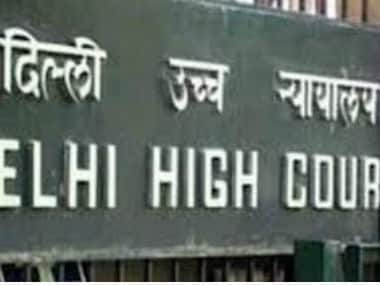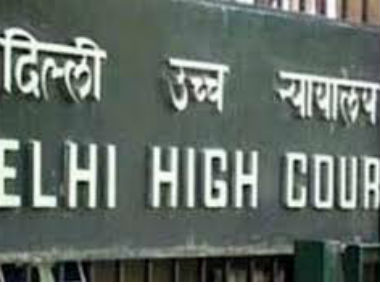The Delhi High Court recently concluded the preliminary examination for Delhi Judicial Services, 2018 on 13 January. While no complaints surfaced this time around, the Delhi Judicial Service examinations (DJS) have in the past, been mired in controversy. The DJS, 2015, for instance, was challenged by 23 candidates alleging that the entire selection process and the evaluation method adopted in the Main (Written) Examination was arbitrary and unreasonable. The 2014 Delhi Judicial Service was similarly challenged for its arbitrary, non-transparent procedures which left a lot of scope for bias in selection. [caption id=“attachment_5772531” align=“alignleft” width=“380”]  File image of the Delhi High Court. PTI[/caption] These challenges underscore why there is an urgent need to scrutinise the selection processes employed in various judicial service examinations. The examinations are conducted by state high courts and in some cases in consultation with State Public Service Commissions as per the requirements set out in the state judicial service rules. These rules are framed under Articles 233 and 234 of the Constitution read with Article 309 which vests all powers of recruitment and appointment with the State Public Service Commission and high courts. A recent study conducted by the Vidhi Centre for Legal Policy_,_ titled Discretion and Delay: Challenges in Becoming a District and Civil Judge analyses all state judicial service rules and qualitatively evaluates them on grounds of efficiency, accountability and transparency. Along with an analysis of these rules, interviews with candidates were also conducted to identify the underlying issues with the direct recruitment of Civil Judge (Junior Division) and District Judges (Direct Recruitment from the Bar). In this piece, some of these issues have been identified. Lack of clearly designated authorities The high court is responsible for conducting the examination for the direct entry of district judges whereas, for Civil Judge (Junior Division) posts, the responsibility of hiring suitable candidates is jointly held by the high court and the State Public Service Commission. A study of the various state judicial service rules revealed that apart from identifying a recruiting authority, most rules do not mention who within these bodies are responsible for conducting the examination along with their specific roles and responsibilities. This results in a lack of accountability in the entire examination process. While most high courts may have a full time designated committee conducting the recruitment, the composition, tenure and functions of such committee members are never clearly specified in the rules. Instead, these decisions are left to the discretion of the chief justice. Moreover, these duties are held only temporarily by individuals and are subject to frequent rotation. There is no binding requirement of having a full-time, dedicated staff responsible for conducting the examination. Ad-hoc procedures The uncertainty associated with these examinations is another challenge. Many states do not conduct recruitment drives on an annual basis. Further, only five states mentioned the frequency with which examinations should be held for the Civil Judge (Junior Division) cadre. Often, candidates are left waiting for the announcement of the judicial service examinations and cannot plan adequately in advance. The system thus is currently quite ad-hoc. Recruiting authorities also do not release an annual calendar at the beginning of the year detailing the timeline for the examination which would help candidates plan well ahead in time. The Union Public Service Commission, which conducts examinations for the civil services, publishes such a calendar every year. This calendar informs candidates of the dates of the various examinations at the very beginning of the year. This brings in a degree of certainty and streamlining of the examination procedure since candidates know how to devote their time to preparation. No provision for grievance redressal One major failing of the judicial service examinations is the fact that it does not have an inbuilt mechanism for grievance redressal. As a result, many avoidable issues such as problems with question papers and eligibility criteria get frequently challenged in high courts. None of the state judicial service rules has any provision of re-evaluation of answer-scripts. This was an issue that was raised in a petition challenging the DJS, 2016 Main Examination. It was argued that lack of such a provision was a violation of the principle of natural justice. Thus candidates, who want their papers re-evaluated have to file a Right to Information applications and if that is rejected for some reason, they have to litigate the matter in the high court. The lack of both re-evaluation provisions and an associated application procedure for obtaining the necessary answer scripts have a negative implication on the transparency of such a process. Establishing a grievance redressal body under these rules, along with an established procedure and timeline for responding to such requests, could easily take care of such concerns and reduce the discretion exercised by the recruiting authorities in this regard. The need of the hour, therefore, is to debate how the judiciary and State Public Service Commissions can reform their recruitment process to tackle the issues outlined above. The lack of clearly designated authorities and grievance redressal mechanisms along with ad-hoc procedures results in the creation of a system of appointment where unregulated discretion operates. In the past, centralising such examinations in the form of an All India Judicial Service has been suggested as a suitable reform. However, given that the AIJS proposal has been explicitly rejected by nine high courts, it would be a good idea for the high courts to step up and institute reforms internally. This would demonstrate their commitment to ensuring efficient recruitment.
The lack of both re-evaluation provisions and an associated application procedure for obtaining the necessary answer scripts have a negative implication on the transparency of such a process.
Advertisement
End of Article


)

)
)
)
)
)
)
)
)



